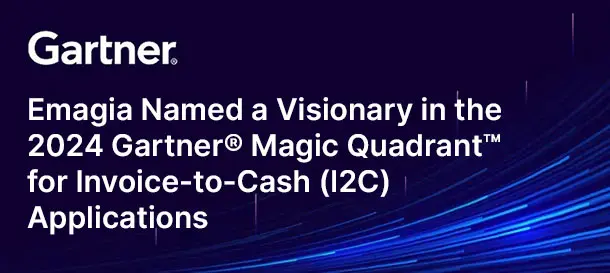When Finance and Sales Don’t Talk, Revenue Suffers
Sales wants to close the deal. Finance wants to get paid on time. When these two teams operate in silos, it leads to customer frustration, delayed payments, and increased disputes—costing the business both revenue and reputation.
Agentic AI includes autonomous, goal-driven AI agents that serve as digital bridges between departments. In this blog, we explore how AI agents are transforming the connection between finance and sales, particularly in accounts receivable (AR), cash application, and customer success operations. You’ll learn how this synergy drives faster collections, improved customer experiences, and better revenue outcomes.
1. Intelligent Communication Sync Between Teams
Finance and sales often have different systems, priorities, and signals—which creates communication gaps that delay issue resolution. In many cases, sales may be unaware of an open billing dispute until it interferes with renewal talks. Finance, on the other hand, may be unaware of contractual nuances that explain customer behavior.
AI agents serve as neutral data relays, ensuring both teams operate with a shared view of account status. This eliminates miscommunication and enables proactive intervention.
- AI agents ensure that finance and sales teams share real-time insights.
- For example, if an agent notices delayed payment from a key customer, it can alert both AR and the account executive automatically.
- This prevents sales from pursuing renewals or upsells without knowing a customer is already at risk of churn due to billing issues.
2. AI-Powered Collections
Most traditional collections tools lack context. They tend to treat every customer the same, regardless of their history or relationship status. This results in robotic, sometimes inappropriate outreach that can harm customer trust.
By integrating CRM data, AI agents are able to adjust tone, cadence, and messaging for collections based on sales stage, ticket activity, or contract terms. This creates a more human-like and relevant collections experience.
- Traditional AR tools treat all customers the same—but AI agents adjust tone, timing, and messaging based on customer history, deal size, and relationship status.
- Integrated with CRM systems, agents can pause or personalize collections outreach when they detect open customer support tickets, renewal negotiations, or key sales conversations.
- This leads to a more empathetic and effective collections process—improving both DSO and customer satisfaction.
3. Cross-Team Workflow Automation
Collections and dispute handling often require back-and-forth between finance, sales, and support teams. Without automation, these handoffs rely on Slack pings, emails, or manual task creation—slowing resolution and increasing error rates.
Deployed properly, AI agents can help eliminate friction by triggering automated workflows based on system data. They know exactly who to notify and when—keeping resolution loops tight.
- AI agents act as intermediaries, automatically triggering workflow handoffs when an issue requires collaboration.
- Example: A dispute flagged in a billing system can automatically generate a support task, notify the sales manager, and prompt finance to suspend dunning notices—all without manual coordination.
- This keeps teams aligned, reduces internal friction, and delivers faster resolution times for the customer.
Final Thoughts
AI agents are becoming collaborative teammates that bridge gaps between sales, customer success, accounts receivable, and cash application. In other words, they are no longer just tools for finance automation. When these departments align through intelligent automation, companies can collect faster, reduce churn, and build stronger customer relationships.
In a world where experience and cash flow both matter, agentic AI is the bridge every business needs.
FAQ: AI Agents for Finance–Sales Alignment
How do AI agents improve collections?
They can personalize timing, tone, and outreach by pulling context from CRM. This includes active tickets or renewal talks which leads to more empathetic and effective follow-ups.
What’s an example of AI cross-team workflow automation?
If a customer disputes an invoice, an agent will notify sales. They then create a support task, and pause collections automatically, with no manual handoff required.
How can Emagia enable this alignment?
Emagia’s agents sync ERP and CRM data, automate task routing, and adapt messaging across the customer lifecycle. This ensures that teams are on the same page.
Emagia’s AI-powered agents:
- Auto-synchronize account risk data across finance and sales
- Personalize outreach based on customer lifecycle signals
- Automize workflow between AR, cash application, sales, and customer success
With Emagia, companies can move from departmental silos to a single, synchronized revenue engine; all powered by AI.




